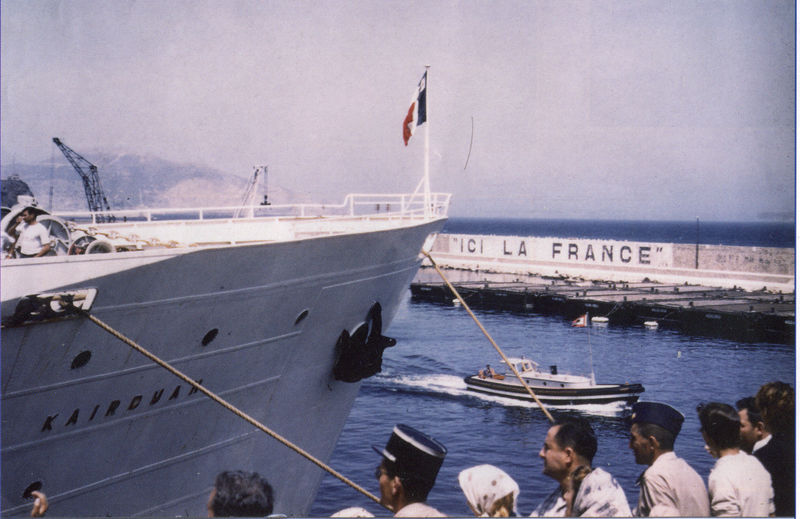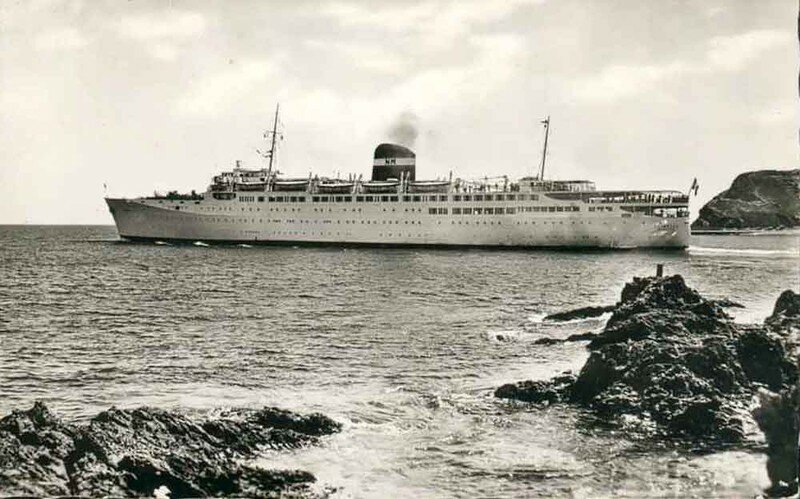France 3 Rhône-Alpes has just promoted the 2012 documentary Les Disparus: Histoire d'un silence d'état in which several Pieds-Noirs whose loved ones went missing during or after the Algerian War are interviewed. The above clip gives a sense of the mental and emotional anguish of not knowing. The Documentary is set to air on 17 November on France 3, but you can watch the entire film by Cyrille Perez and Gilles Perez at http://provence-alpes.france3.fr/emissions/doc-24-provence-alpes/actu/les-disparus-histoire-d-un-silence-d-etat.html
Wednesday, November 14, 2012
The Missing: The Story of the Government's Silence
France 3 Rhône-Alpes has just promoted the 2012 documentary Les Disparus: Histoire d'un silence d'état in which several Pieds-Noirs whose loved ones went missing during or after the Algerian War are interviewed. The above clip gives a sense of the mental and emotional anguish of not knowing. The Documentary is set to air on 17 November on France 3, but you can watch the entire film by Cyrille Perez and Gilles Perez at http://provence-alpes.france3.fr/emissions/doc-24-provence-alpes/actu/les-disparus-histoire-d-un-silence-d-etat.html
Sunday, September 16, 2012
6eme Salon du Savoir-Faire Pied-Noir
One of the many events I missed over the summer, yet it has been captured on video. Of note: the collectors' items from Algeria.
Friday, June 29, 2012
Monument des Rapatriés, Marseille

 |
| Monument des Rapatriés (avant) |
For now, just a few photos of today's inauguration of the plaque recognizing the 600,000 Français d'Algérie who arrived in Marseille 50 years ago. It is now at the bottom of the Monument des Rapatriés, on the Corniche in Marseille.
The ceremony was short, speeches moving, singing of "Les Africains" even more so. The event was briefly disturbed by a couple of cars driving by, honking and waving Algerian flags. Attendees were upset.
 |
| Jean-Claude Gaudin, Mayor of Marseille |
Thursday, June 14, 2012
Upcoming commemorative events
 As we come upon the fiftieth anniversary of Algerian independence and the commemoration of the exodus of the Pieds-Noirs, numerous events are in the works. One I wish I could attend, "50e anniversaire de l'exode 1962-2012 des Français et des Harkis d'Algérie" will be held at the Hôtel Atria, Nîmes 23-24 June. Among the presenters are Charly Cassan and Jean-Pierre Lledo.
As we come upon the fiftieth anniversary of Algerian independence and the commemoration of the exodus of the Pieds-Noirs, numerous events are in the works. One I wish I could attend, "50e anniversaire de l'exode 1962-2012 des Français et des Harkis d'Algérie" will be held at the Hôtel Atria, Nîmes 23-24 June. Among the presenters are Charly Cassan and Jean-Pierre Lledo.In Marseille from 28-30 June, I hope to attend a few of the events scheduled for the "Commémoration à Marseille du Cinquantenaire de l'exode des Français d'Algérie." My main focus is research-oriented as I will be interviewing artists who express the unspeakable of Algeria in their work. To that end, and thanks much to Nicole Guiraud, I will be at the "Colloque sur la Transmission de la Mémoire des Français d'Algérie" (30 June-1 July) in Masseube. Follow the links for programs and registration information.
Thursday, January 26, 2012
le bateau du retour: the return vessel
One of the most startling aspects of Pied-Noir narratives is the near absence of the actual voyage away from Algeria. All eyes were fixed on Algeria as the boat slowly tugged them away. Marie Cardinal's photo-documentary book Les Pieds-Noirs, for example, ends abruptly with vague references to the departure coupled with ads for vacation in France and a photo of a large liner.
There is often a large disconnect between the process of leaving Algeria and the vessel that took them away. Certainly, their minds were elsewhere at the time - needs for lodging, the new life before them, the traumas of what had just transpired before the departure. Conditions were poor for most the Pieds-Noirs during the departure, the voyage, and upon arrival. Maybe there isn't much to remember about the relatively short voyage that would entirely change the course of their lives.
Today, however, I stumbled upon a website with a page dedicated to these ships, specifically the Kairouan. The Popodoran blog's bi-line is, "Je viens d'un pays qui n'existe plus: Oran pour ne jamais oublier..." 'I come from a country that no longer exists: Oran, so we never forget...' Although some of the photo inscriptions recount other voyages than the exodus, one remarks, "tu m'as ramené en France quand j'avais 10 ans en 1962. Jamais je ne t'oublierais" 'you brought me back to France when I was 10 years old in 1962. I will never forget you.' The collection concludes with images of the Port d'Oran upon which was painted the inscription, "Ici la France" 'This is France.' The contributors recount the pain of their departure.
There is often a large disconnect between the process of leaving Algeria and the vessel that took them away. Certainly, their minds were elsewhere at the time - needs for lodging, the new life before them, the traumas of what had just transpired before the departure. Conditions were poor for most the Pieds-Noirs during the departure, the voyage, and upon arrival. Maybe there isn't much to remember about the relatively short voyage that would entirely change the course of their lives.
Today, however, I stumbled upon a website with a page dedicated to these ships, specifically the Kairouan. The Popodoran blog's bi-line is, "Je viens d'un pays qui n'existe plus: Oran pour ne jamais oublier..." 'I come from a country that no longer exists: Oran, so we never forget...' Although some of the photo inscriptions recount other voyages than the exodus, one remarks, "tu m'as ramené en France quand j'avais 10 ans en 1962. Jamais je ne t'oublierais" 'you brought me back to France when I was 10 years old in 1962. I will never forget you.' The collection concludes with images of the Port d'Oran upon which was painted the inscription, "Ici la France" 'This is France.' The contributors recount the pain of their departure.
Sunday, January 15, 2012
CDHA collecting testimonials
The Centre de Documentation Historique sur l'Algérie (CDHA) in Aix-en-Provence contacted me last week with the following call for participation (my translation follows):
Nous avons un groupe « témoignages » (Histoire de Paroles) qui enregistre les récits de la vie quotidienne en Algérie, de l’exode et de l’accueil en France et dans les différents pays d’ailleurs. Si dans votre entourage des Français d’Algérie veulent également raconter leurs souvenirs, leur vécu, leurs émotions afin que leur mémoire, leur histoire soit conservée et transmise aux générations futures, pouvez-vous leur demander de prendre contact avec nous.
We have a group "témoignages" 'testimonials' (Histoire de Paroles) that is recording stories of daily life in Algeria, of the exodus and the welcome in France and in various other countries. If there are Français d'Algérie you know who would like to talk about their memories, what they lived, and their emotions so that their memory and their history can be preserved and transmitted to future generations, could you please ask them to contact us?
If you would like to participate, please contact the CDHA directly at contact@cdha.fr. This promises to be a useful resource for those of us researching the Pied-Noir community and memory.
Subscribe to:
Comments (Atom)




